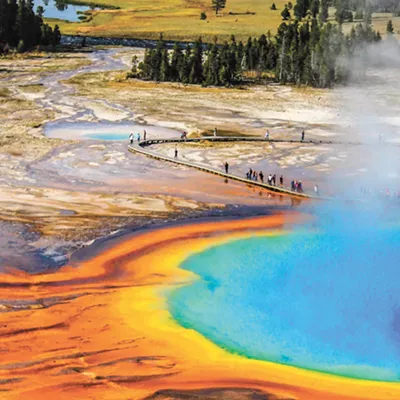He's performed for the soundtrack for Crouching Tiger, Hidden Dragon and appeared on the Academy Awards telecast. You can even buy his albums in Starbucks. Yet it's impossible to call Yo-Yo Ma a sell-out as long as he continues to engage in productions like Silk Road Journeys.
Each of the 12 tracks on this album is the result of Ma's Silk Road Project, which he started in 1998 as a means to musically explore and connect the different cultures that had been shaped by the historical Silk Road, which joined Asia to Europe. Working with musicologist Theodore Levin, Ma has managed to extend the physical Road's influence and create a modern crucible of cultural exchange.
And it's harder to think of a musician who's better poised to do it. Ma comes with both the acclaim of Western classical music's artistic community and a genuine engagement with his own Asian heritage. Yet Silk Road Journeys is hardly an "East meets West" album. Many of the tracks are decidedly "East meets East," as traditional Iranian musicians perform alongside Indian percussionists, then make way for the sounds of Chinese instruments.
It's only during one piece -- "Chi passa per'sta strada" -- that instruments like the Chinese pipa and the Indian tabla are used to perform a European tune. And what a performance: Completely steeped in the tradition of Italian Renaissance street improvisation, the musicians nevertheless craft musical lines inherent to their native instruments. It's a sound unlike anything else, and is strong enough to be the start of something new.
But even when the musicians are being relatively straightforward, such as with improvisations on the traditional Persian motifs "Avaz-e Dashti," there is a conversational plasticity to their playing that suggests the influence of American jazz.
It's hard to imagine a better-crafted attempt to introduce the music of the cultures presented on this album to both Western audiences and each other. That it succeeds as an album, and not merely as an ethno-musical experiment, is due entirely to the sincerity of the musicians. It suggests that perhaps while civilizations should preserve their traditional cultural identities, their artistic survival requires those identities to be changed by the world around them.















